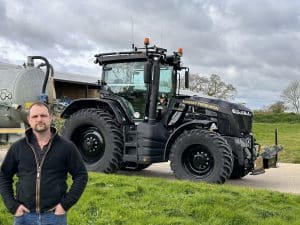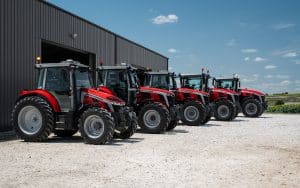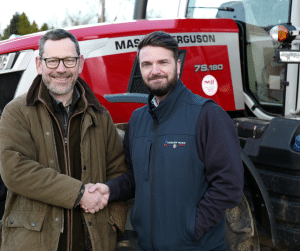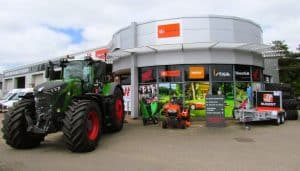Fendt Round Baler Advantage: Enhanced Performance and Reliability on a Cambridgeshire Farm
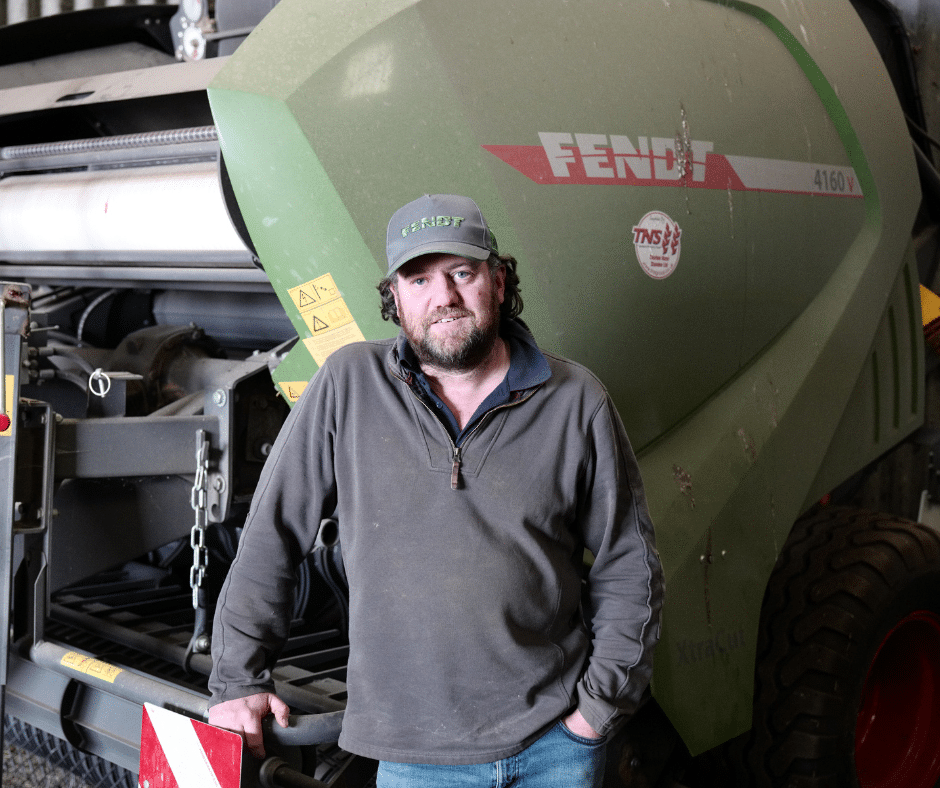
A Fendt round baler which replaced a competitor brand machine on a Cambridgeshire livestock farm two years ago, is making better bales and proving much more reliable, says its owners.
Trading as AJ & NJ Lee, John Lee and his son, Nick farm at West Fen, near Ely. The main enterprise is a commercial herd of breeding cattle. The 140 breeding cows are a mix of Hereford-cross, Simmental and Simmental-cross, and some Angus-cross, and these are put to the farm’s five Limousin bulls. Limited shed capacity means that progeny are sold as stores to three regular buyers all within the Eastern Counties, but possible investment in additional buildings might see calves kept and fattened in future.
The cattle are brought in for the winter, and graze outside when the land is dry enough which is usually from mid-April. As well as their modern livestock buildings, the Lees own 40ha of grassland and rent additional land nearby. This provides the summer grazing, and grass for silage. Straw is sourced from nearby arable farms and baled by the Lees using their Fendt round baler.
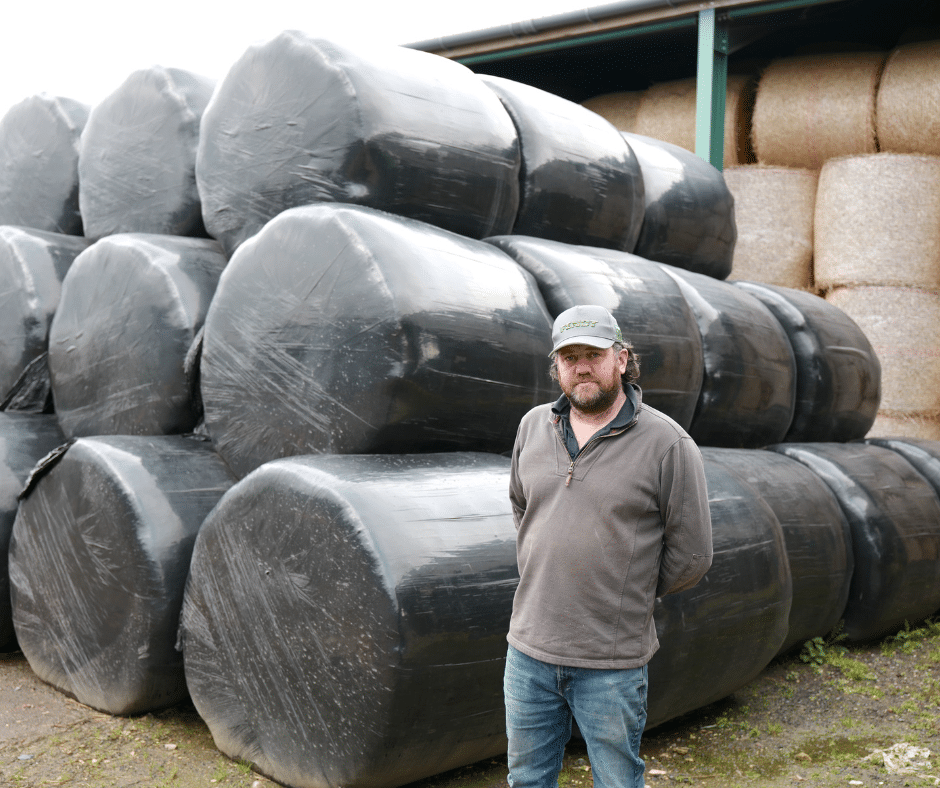
Change to Fendt
Approximately 4,500 round bales are needed annually, including 2,500 straw, and 1,800–2,200 of grass silage. A Fendt 4160V variable-chamber round baler was purchased from local dealer, Thurlow Nunn Standen (TNS) in 2020, replacing a competitor brand which had supplied the farm’s balers since the mid-1990s.
“We had a succession of balers of the same make, and changed them regularly,” said Nick. “We didn’t really consider alternatives until a breakdown occurred mid-harvest in 2020. Because the dealer couldn’t provide a loan machine or repair it quickly enough, we were unable to work.
“We already used a Lely mower, tedder and rake which all performed well, and being aware that Fendt Rotana balers share many aspects of the proven Lely baler design, we considered a Fendt baler instead.”
Superb dealer service
The farm is only 10 minutes from the TNS Littleport depot, which supplied and looks after the Lees’ two Fendt tractors. Nick said that the sales and service teams are both excellent and when he asked to try the Fendt baler, they couldn’t have been more helpful. The Fendt 4160V arrived on a Saturday evening and was put straight to work baling straw. Nick was immediately impressed by its performance, so he confirmed an order. “It blew the socks off other balers I had tried, and I just wished we had considered Fendt sooner.”
Belts preferred
Nick said that although fixed chamber roller balers were operated in the past, since 2010 all the farm’s balers have been variable-chamber belt models.
“All our bales are 4ft diameter, as we find them best for transport, stacking and use. The reason we prefer belt balers to fixed chamber roller machines is because the bales are tighter and denser all the way through. Belt balers perform better in hot, dry conditions when the straw is brittle as the belts maintain constant rotation in the early stages of bale formation when rollers can slip. We haven’t experienced increased maintenance requirements or operating costs, and the Fendt baler is extremely reliable. Making bales which are denser and contain more material means we have been able to reduce the number of bales we make and transport by several hundred per year.”
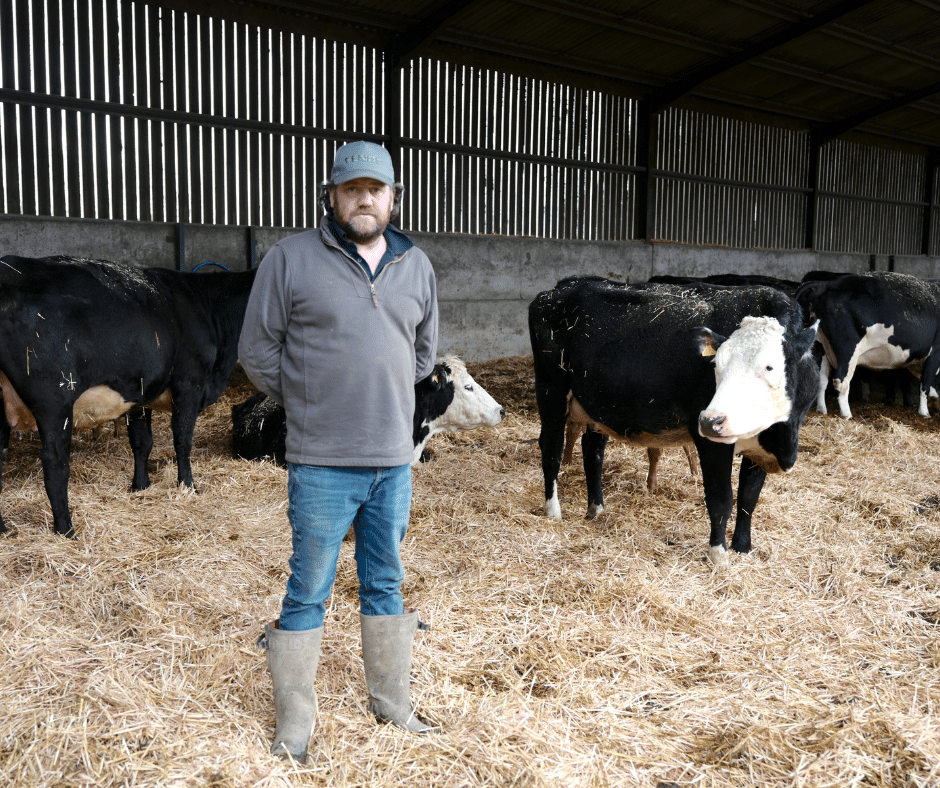
Chopped straw advantage
The Fendt baler is the first on the farm with a chopper. “I wouldn’t have specified a chopper if there had been an option, but this was the only baler available when we needed it and it had one fitted. After using bales made from chopped material for the past two winters; I’m very glad now that we had the chopper. The silage is better – cattle can digest the shorter material more easily, and it’s better for their health. Another advantage is that the pre-chopped material requires less processing in the mixer-wagon when making up the feed rations.”
The baler applies net wrap, and silage bales are also film-wrapped on arrival in the yard before being loaded into store. “The Fendt’s bales are consistent, and hold their shape very well during transport, stacking and storage,” said Nick. “We stack silage bales three high, and the bottom row bales remain in excellent condition even after winter.”
Productive and reliable
“The Fendt baler comfortably achieves much higher work rates than our previous machine, although we are rarely under much time pressure so prefer to work when conditions are dry. Sometimes that means that our silage is more like haylage, but when there are light showers we carry on, and if the rain is heavier then we stop. That’s best for our baler too,” he confirmed. “The 2.25m pick-up copes with large swaths behind modern combines, and the pick-up leaves very little material on the ground.”
The baler is easy to look after. Annual services are carried out by TNS, and Nick said daily checks take very little time. Grease points are easy to get at, and most are in blocks.
The Fendt’s reliability is a big improvement compared to the previous baler. “With our previous balers, we had to carry a large assortment of workshop tools in a box on the front linkage to keep us going,” said Nick. “This saved frequent trips back to the yard every time adjustments were needed, or the baler broke down.
“The Fendt is much more reliable, so we no longer carry so many tools and parts with us, and that might mean that we can avoid the expense of a front linkage when we next upgrade that tractor.”
Pleased with decision
“It was only because the previous dealer couldn’t lend us a baler when ours broke down that we considered the Fendt, and now I’m so glad that we did,” confirmed Nick. “We usually update our balers every five to six years, but that depends on the number of bales made and the reliability. Fendt bales are denser so fewer are needed, and we don’t expect the reliability to decrease. It’s likely we will keep the baler an extra year, but when it is changed then it will almost certainly be for another Fendt from TNS.”

